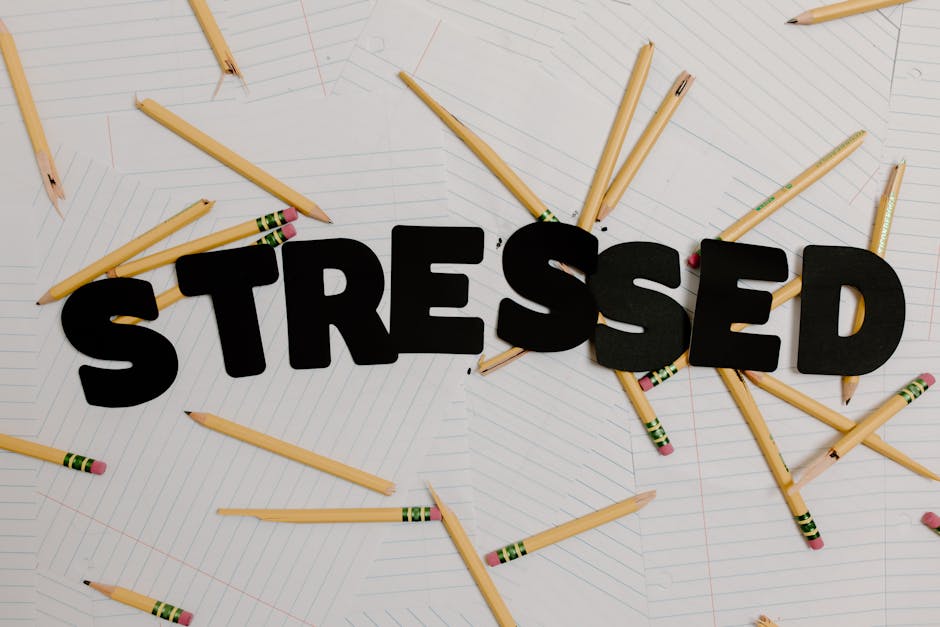Techniques For Managing Stress Through Creative Writing
Feeling stressed? You’re not alone. Stress is a common part of life, but it doesn’t have to control you. One effective way to manage stress is through creative writing. This technique allows you to express your thoughts and emotions, helping you find relief and clarity. Keep reading to discover how creative writing can be your secret weapon against stress.
Key Takeaways
- Creative writing is a powerful tool for stress management.
- It helps in self-expression and emotional processing.
- Writing can enhance creativity and improve mental well-being.
- Establishing a writing routine is crucial for consistency.
- Journaling and mindful writing are effective stress-relief techniques.
- Sharing your work can build support networks and reduce isolation.
Introduction to Stress Management Through Creative Writing
Importance of Stress Management
Stress is like a pesky mosquito buzzing around your head. It can be annoying, distracting, and sometimes overwhelming. Managing stress is essential for maintaining a healthy mind and body. Without proper management, stress can lead to anxiety, depression, and other health issues. That’s why finding effective stress-relief techniques is crucial.
Role of Creative Writing in Stress Relief
Creative writing is more than just putting words on paper. It’s a form of self-expression that allows you to explore your thoughts and emotions. Writing can be therapeutic, helping you process your feelings and gain a better understanding of yourself. It’s like having a conversation with your inner self, where you can vent, reflect, and find peace.
Overview of Techniques
There are various techniques for incorporating creative writing into your daily life. From journaling to mindful writing exercises, each method offers unique benefits for stress relief. Let’s dive into these techniques and discover how they can help you manage stress effectively.

Benefits of Creative Writing for Stress Relief
Self-Expression and Emotional Processing
Understanding and Articulating Emotions
Writing allows you to explore your emotions in a safe and private space. It’s like opening a window to your soul, where you can freely express your thoughts and feelings. By putting your emotions into words, you can gain a deeper understanding of what you’re going through. This process can be incredibly healing and empowering.
Reducing Anxiety Through Expression
Anxiety often stems from bottled-up emotions. Writing provides an outlet for these emotions, helping you release tension and reduce anxiety. It’s like letting steam out of a pressure cooker, preventing it from exploding. By expressing your feelings through writing, you can find relief and calmness.
Enhancing Creativity and Well-being
Stimulating Creative Thinking
Creative writing stimulates your imagination and encourages you to think outside the box. It’s like a mental workout that keeps your brain active and engaged. By exploring different writing styles and genres, you can unleash your creativity and discover new perspectives.
Improving Mental Health
Writing has been shown to improve mental health by reducing stress and promoting relaxation. It’s like a soothing balm for your mind, helping you unwind and recharge. By incorporating writing into your daily routine, you can enhance your overall well-being and lead a more balanced life.

Techniques for Incorporating Creative Writing into Daily Life
Establishing a Writing Routine
Setting Regular Writing Times
Consistency is key when it comes to creative writing. Set aside a specific time each day for writing, whether it’s in the morning, afternoon, or evening. Treat it like a date with yourself, where you can escape from the hustle and bustle of daily life and focus on your thoughts and emotions.
Creating a Dedicated Writing Space
Having a dedicated writing space can enhance your writing experience. Find a quiet and comfortable spot where you can write without distractions. It could be a cozy corner in your home, a peaceful park, or a bustling café. Make it your sanctuary, where you can let your creativity flow freely.
Exploring Different Writing Styles and Genres
Poetry and Prose
Poetry and prose are two popular forms of creative writing. Poetry allows you to express your emotions through rhythm and imagery, while prose offers a more structured narrative. Experiment with both styles to find what resonates with you. You might be surprised by the stories and emotions that emerge.
Fiction and Non-Fiction
Fiction and non-fiction are two sides of the same coin. Fiction lets you create imaginary worlds and characters, while non-fiction allows you to explore real-life experiences and events. Both genres offer unique opportunities for self-expression and stress relief. Try writing a short story or a personal essay to see which style suits you best.

Journaling as a Stress Management Tool
Reflective Journaling
Daily Reflections
Reflective journaling involves writing about your daily experiences and emotions. It’s like keeping a diary, where you can document your thoughts and feelings. This practice can help you gain insights into your life and identify patterns that may be contributing to stress.
Gratitude Journals
Gratitude journals focus on the positive aspects of your life. By writing down things you’re grateful for, you can shift your mindset from negativity to positivity. This practice can boost your mood and reduce stress, helping you appreciate the little things that bring joy to your life.
Promoting Mental Clarity
Organizing Thoughts
Writing can help you organize your thoughts and make sense of complex emotions. It’s like untangling a messy ball of yarn, where you can sort through your feelings and gain clarity. By putting your thoughts on paper, you can create a roadmap for navigating life’s challenges.
Identifying Stressors
Journaling can also help you identify stressors in your life. By reflecting on your experiences, you can pinpoint the sources of stress and develop strategies to manage them. This process can empower you to take control of your life and reduce stress effectively.

Creative Writing as Mindfulness Practice
Mindful Writing Exercises
Stream of Consciousness Writing
Stream of consciousness writing involves writing continuously without worrying about grammar or structure. It’s like letting your thoughts flow freely, capturing whatever comes to mind. This practice can help you tap into your subconscious and gain insights into your emotions.
Focused Free Writing
Focused free writing involves writing about a specific topic or emotion for a set period. It’s like shining a spotlight on a particular aspect of your life, allowing you to explore it in depth. This practice can help you process your feelings and gain a deeper understanding of yourself.
Benefits of Mindfulness in Writing
Increased Focus and Presence
Mindful writing encourages you to be present in the moment, focusing on your thoughts and emotions. It’s like a meditation practice that enhances your awareness and concentration. By being mindful in your writing, you can improve your focus and reduce stress.
Reduced Stress Levels
Mindfulness has been shown to reduce stress levels and promote relaxation. By incorporating mindful writing into your routine, you can experience these benefits firsthand. It’s like taking a deep breath and letting go of tension, helping you find peace and tranquility.
Sharing and Connecting Through Writing
Sharing Work with Others
Writing Groups and Workshops
Joining a writing group or workshop can provide valuable feedback and support. It’s like having a team of cheerleaders who encourage you to grow and improve. By sharing your work with others, you can gain new perspectives and build confidence in your writing.
Online Writing Communities
Online writing communities offer a platform for writers to connect and share their work. It’s like a virtual café where you can meet like-minded individuals and exchange ideas. By participating in these communities, you can expand your network and find inspiration for your writing.
Building Support Networks
Receiving Feedback and Encouragement
Receiving feedback from others can help you improve your writing and boost your confidence. It’s like having a trusted advisor who guides you on your writing journey. By seeking feedback, you can refine your skills and grow as a writer.
Reducing Feelings of Isolation
Writing can sometimes feel like a solitary activity, but it doesn’t have to be. By connecting with other writers, you can reduce feelings of isolation and find a sense of belonging. It’s like finding your tribe, where you can share your passion for writing and support each other.

Conclusion
Recap of Techniques and Benefits
Creative writing offers a wealth of benefits for stress management. From self-expression and emotional processing to enhancing creativity and well-being, writing can be a powerful tool for finding relief and clarity. By incorporating writing into your daily routine, you can improve your mental health and lead a more balanced life.
Encouragement to Begin a Creative Writing Practice
If you’re feeling stressed, why not give creative writing a try? It’s a simple and effective way to manage stress and improve your well-being. Whether you choose to journal, write poetry, or explore fiction, the possibilities are endless. So grab a pen and paper, and start your writing journey today. You might just discover a new passion and find the peace you’ve been seeking.
For more insights on stress management techniques and expressive writing, explore these resources.
Discover the Art of Relaxation: FAQ on Managing Stress Through Creative Writing
What is creative writing, and how can it help manage stress?
Creative writing involves expressing thoughts, emotions, and stories through written words. It can help manage stress by providing an outlet for self-expression, allowing individuals to process emotions, and offering a sense of accomplishment and control over their narratives.
What are some techniques for using creative writing to relieve stress?
Techniques include journaling, free writing, poetry, and storytelling. Journaling allows for reflection and emotional release, while free writing can help clear the mind. Poetry and storytelling engage creativity and can provide a sense of escapism.
How often should I engage in creative writing to see stress-relieving benefits?
Consistency is key. Aim to write a few times a week, even if it’s just for 10-15 minutes. Regular practice can help establish a routine that promotes relaxation and mindfulness.
Do I need to be a skilled writer to benefit from creative writing for stress management?
No, you don’t need to be a skilled writer. The focus is on expression rather than perfection. The act of writing itself is therapeutic, regardless of the quality of the output.
Can creative writing be combined with other stress management techniques?
Yes, creative writing can complement other stress management techniques like meditation, yoga, or deep breathing exercises. Combining these practices can enhance overall well-being and provide a holistic approach to stress relief.
What should I write about to effectively manage stress?
Write about anything that comes to mind—your feelings, daily experiences, dreams, or fictional stories. The key is to let your thoughts flow freely without judgment or pressure.
How can creative writing improve mental clarity and focus?
Creative writing encourages mindfulness and concentration, helping to organize thoughts and clear mental clutter. By focusing on writing, you can develop greater mental clarity and improve your ability to concentrate on tasks.
Are there any specific writing prompts that can help with stress relief?
Writing prompts like ‘Describe a place where you feel peaceful,’ or ‘Write about a time you overcame a challenge,’ can guide your writing and help you explore emotions and solutions creatively.
Can sharing my creative writing with others help reduce stress?
Sharing your work can foster connection and support, which may reduce stress. However, it’s important to share only if you’re comfortable, as the primary goal is personal expression and relief.
What if I feel more stressed after writing about my emotions?
It’s normal to feel heightened emotions initially. If writing about certain topics is too overwhelming, try focusing on positive or neutral subjects. Consider discussing your feelings with a therapist if stress persists.



